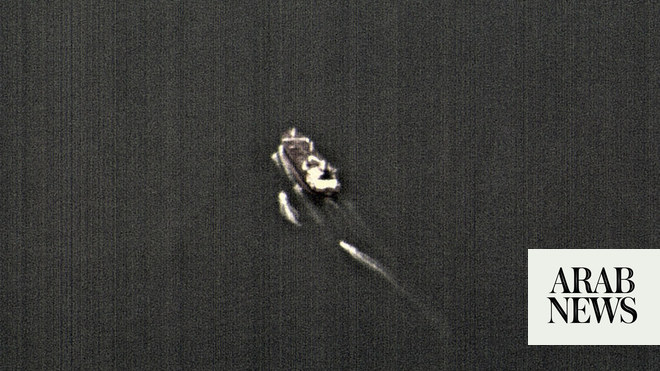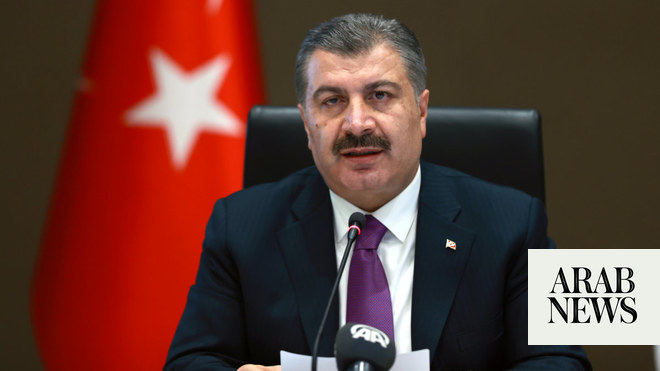
The dispatch of the unit doesn’t require parliamentary approval since it has already been approved for similar roles and missions overseas
SEOUL: South Korea is considering sending naval forces to the Strait of Hormuz to help protect international oil shipping from attack, defense authorities said on Monday.
“We’re closely watching the situation to brace for various possibilities,” Choi Hyun-soo, a Ministry of National Defense spokeswoman, said.
She rejected media claims that Seoul’s decision followed a request by the US government.
“We are reviewing various options to help protect our ships sailing through the waters,” she said.
However, government sources confirmed that South Korea’s military is preparing to send its anti-piracy unit Cheonghae, now operating off Somalia, to join the US-led maritime coalition in the Gulf. “Technically, no decision has been made. But, practically, yes,” a senior officer of the Joint Chiefs of Staff told Arab News on condition of anonymity.
“Given the importance of the alliance with the US, it’s imperative for us to take a role in the coalition,” he said.
The officer said that the Cheonghae unit had been trained to protect commercial shipping from a range of threats in and around the Gulf since 2009.
The 300-strong unit, which operates from a 4,500-ton KDX-II destroyer carrying a Lynx anti-submarine helicopter, has escorted 21,895 ships and conducted 21 operations to combat piracy off Somalia.
“The dispatch of the unit doesn’t require parliamentary approval since it has already been approved for similar roles and missions overseas, which could help minimize controversy in political circles over the sending of troops,” the officer said.
Seoul’s presidential office expressed caution about joining the anti-Iran multinational coalition.
We’re closely watching the situation to brace for various possibilities.
Choi Hyun-soo, Spokeswoman, Ministry of National Defense
“Any decision (on sending troops) will be based on national interests,” a presidential spokesman said.
Observers said that the Cheonghae unit’s move to the Strait of Hormuz comes at a sensitive time, with Seoul seeking support from the US over its escalating trade dispute with Japan, which has decided to restrict exports of high-tech chip-making materials to South Korea.
“The Hormuz dispatch is a litmus test of the evolving South Korean-US alliance, which has been weakening to an extent over issues such as North Korea,” Moon Keun-shik, an analyst at the Korea Defense and Security Forum in Seoul, said.
The troop dispatch is also tied up with negotiations between Seoul and Washington over defense cost-sharing. The Trump administration wants Seoul to bear the costs for US troops on South Korean soil. As a result, South Korea agreed to pay $920 million early this year, up from $830 million last year.
“South Korea has few options to resist US demands. The dispatch of the Cheonghae unit is an attempt to soothe US officials,” Kim Dae-young, a researcher at the Korea Institute for National Security, said.
A long-standing business relationship between Seoul and Tehran adds to the risks facing the South Korean government over possible intervention in regional tensions.
“South Korea faces a dilemma in terms of security and economic matters,” Kim said.
“Joining the US-led maritime coalition in the Strait of Hormuz would worsen economic ties with Iran. But we cannot sit idle because about 75 percent of oil imports to our country are shipped through the strait.”
Tehran was Seoul’s third-largest source of petroleum in 2017 and became the largest supplier of condensates for South Korea’s petrochemical industry.
After the US reimposed sanctions in 2018, South Korean imports of Iranian oil declined by 60 percent and were completely suspended this year with the end of US waivers for importing some Iranian oil.
In 2018, South Korea secured $5.2 billion in construction contracts with Iran, but most of the contracts have been abandoned.
The country’s exports to Iran in the past five months have shrunk by up to 10 times in comparison with the same period last year, reaching just $148 million.
In the same period, Iran’s exports to South Korea have declined by 33 percent, reaching $2 billion.











